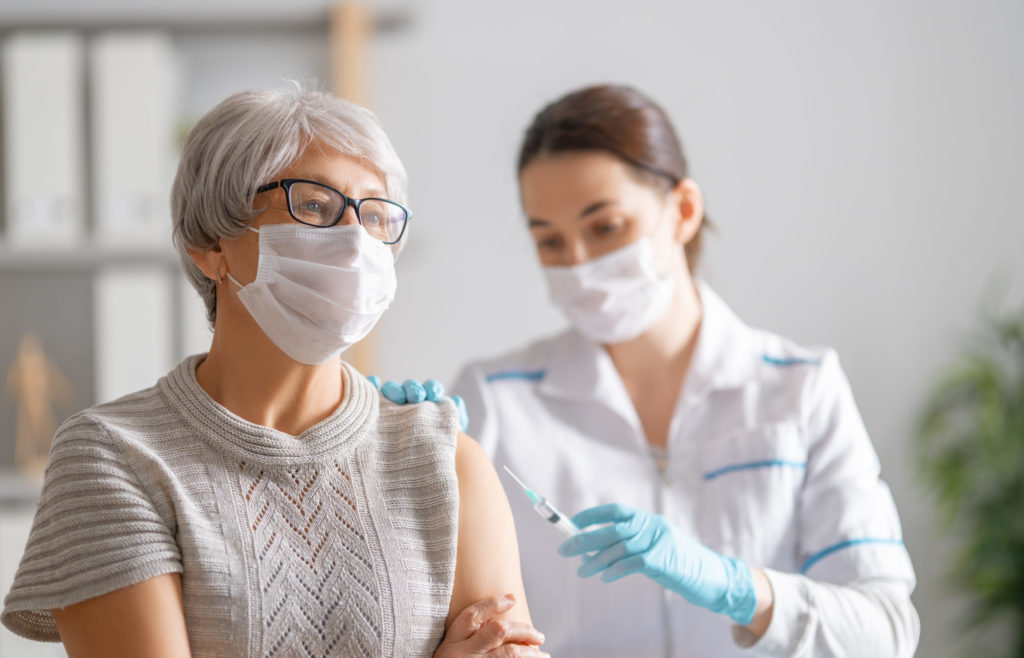
In recent public stakeholder meetings, agency officials provided information about the approval and roll-out of COVID-19 vaccines. They also refuted misinformation.
Key points included:
The vaccines are effective.
Until real-life experience verifies vaccine efficacy, however, measures such as social distancing and face masks will need to continue.
Although they will not return European citizens to normal life overnight, the vaccines are expected to work quite well at protecting against COVID-19. Trial data shows the vaccines are effective across different gender, race and ethnic groups.
COVID-19 vaccines are safe.
The two vaccines currently approved by the European Medicines Agency not contain the virus itself. Rather, they contain a molecule that helps the immune system repel the disease. The vaccine therefore cannot cause people to contract the disease.
In addition, studies have found no fertility risk related to the vaccines. They are also reported as being safe for immunocompromised people, although those people might not respond quite as well to the medicine. Nevertheless, they should still be vaccinated as they may be at higher risk for severe disease if they contract COVID-19.
Safety studies will be ongoing.
Safety will continue to be monitored. Studies being undertaken by regulators include the first and second phases of the 2020-2021 Bridging Study to perform early safety monitoring, with a third phase of EMA-funded safety studies coming in 2021-2022.
Future safety studies are also being put in place, coordinated by the European Medicines Agency and the European Centre for Disease Prevention and Control.
Pharmacovigilance is key.
Pharmacovigilance, or drug safety tracking, will require reporting of side effects. Spontaneous reporting of side effects will be collected in EudraVigilance, the European database of suspected side effects. The European Medicines Agency has developed protocols to help standardise data captures so that not only European, but also global, data can be integrated. The agency will also use national registries to monitor adverse events.
Patients must be sufficiently informed about how to go about reporting any side effects that occur and the importance of submitting that information. As the vaccines are biologics, it is important the batch number is collected if side effects do occur.
The anonymised data will always be made available for public review.
While the European Medicines Agency has taken the lead on generating this information, patient advocacy groups have a critical role to play. As trusted messengers for patients across Europe, advocacy groups can encourage prompt uptake of vaccinations for the safety of their patient population.
They will also continue to be an important resource for information regarding everything from vaccine safety to side effects to vaccination availability.
Recent Posts

Global Alliance for Patient Access
© 2026 GAfPA. All Rights Reserved
| Cookie | Duration | Description |
|---|---|---|
| cookielawinfo-checkbox-analytics | 11 months | This cookie is set by GDPR Cookie Consent plugin. The cookie is used to store the user consent for the cookies in the category "Analytics". |
| cookielawinfo-checkbox-functional | 11 months | The cookie is set by GDPR cookie consent to record the user consent for the cookies in the category "Functional". |
| cookielawinfo-checkbox-necessary | 11 months | This cookie is set by GDPR Cookie Consent plugin. The cookies is used to store the user consent for the cookies in the category "Necessary". |
| cookielawinfo-checkbox-others | 11 months | This cookie is set by GDPR Cookie Consent plugin. The cookie is used to store the user consent for the cookies in the category "Other. |
| cookielawinfo-checkbox-performance | 11 months | This cookie is set by GDPR Cookie Consent plugin. The cookie is used to store the user consent for the cookies in the category "Performance". |
| viewed_cookie_policy | 11 months | The cookie is set by the GDPR Cookie Consent plugin and is used to store whether or not user has consented to the use of cookies. It does not store any personal data. |